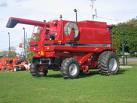Wheatley Farms Inc.
Bridgeville Delaware
Bridgeville Delaware
Your Subtitle text
Home
What is a Family Farm?
A family farm is not defined by size, but rather by the fact that the family provides the vast majority of the labor and management decisions. For example, farmers on the Delmarva Peninsula operate a large variety of farms—some farm a couple of acres while others farm thousands of acres. The common goal of family farmers is farm sustainability—both economically and environmentally.
On a family farm, the family takes the risks, makes the decisions and should receive the economic gains. In order to remain economically viable, farmers must be able to earn a decent living from their farming operations to support their families and contribute to the rural economy. From purchasing equipment to direct marketing, family farmers play a major role in contributing to rural communities’ economic viability.
Current farm policy, however, promotes environmental destruction and the loss of economic fairness and freedom. This policy forces family farmers to exploit their land by producing more to partially compensate for lower returns which contributes to the economic decline of the family farm system. This also leads to farm consolidation, foreclosures and more industrialized agriculture resulting in further concentration of economic and political power within faceless and unaccountable multinational corporations.
A thriving, sustainable family farm system will only be possible if supported by government policy that encourages widespread ownership of land and restores competition to the buying, exporting, packing and processing industries in all commodities. Furthermore, policy needs to ensure that farm products’ prices reflect all costs, both internal and external, striving for economic justice throughout the farm and food system.
A family farm is not defined by size, but rather by the fact that the family provides the vast majority of the labor and management decisions. For example, farmers on the Delmarva Peninsula operate a large variety of farms—some farm a couple of acres while others farm thousands of acres. The common goal of family farmers is farm sustainability—both economically and environmentally.
On a family farm, the family takes the risks, makes the decisions and should receive the economic gains. In order to remain economically viable, farmers must be able to earn a decent living from their farming operations to support their families and contribute to the rural economy. From purchasing equipment to direct marketing, family farmers play a major role in contributing to rural communities’ economic viability.
Current farm policy, however, promotes environmental destruction and the loss of economic fairness and freedom. This policy forces family farmers to exploit their land by producing more to partially compensate for lower returns which contributes to the economic decline of the family farm system. This also leads to farm consolidation, foreclosures and more industrialized agriculture resulting in further concentration of economic and political power within faceless and unaccountable multinational corporations.
A thriving, sustainable family farm system will only be possible if supported by government policy that encourages widespread ownership of land and restores competition to the buying, exporting, packing and processing industries in all commodities. Furthermore, policy needs to ensure that farm products’ prices reflect all costs, both internal and external, striving for economic justice throughout the farm and food system.




